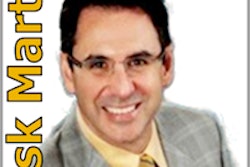U.S. dentists aren't alone in their skepticism of proposed healthcare reforms such as those being debated by the U.S. Congress these days.
In Australia, a proposed $3.7 billion ($3 billion U.S.) plan for universal dental health coverage is facing similar opposition.
Denticare, a key element of a National Health and Hospitals Reform Commission (NHHRC) interim report released in February, had been one of the commission's most popular ideas, according to a story in the Australian. But with the release July 27 of the final report, A Healthier Future for All Australians, oral health professionals across the country are voicing concerns about the impact Denticare would have on patient care and treatment costs, the story noted.
"The long-awaited final report of the National Health and Hospitals Reform Commission released today by Prime Minister Kevin Rudd demonstrates the same lack of appreciation of dentistry and the problems with dental care delivery as the earlier interim report," the Australian Dental Association stated in a press release. "The recommendation for a universal Denticare scheme will not deliver improved access to appropriate dental healthcare. It is simply a universal plan which will deliver limited services such as scale and cleaning of teeth, extractions, fillings, and the provision of dentures, and shows no appreciation of the real problems facing dental delivery in Australia."
Under the Denticare plan, all Australians would have universal access to preventive and restorative dental care and dentures, regardless of their ability to pay, the NHHRC noted in a press release. People would be able to select between private or public dental health plans, and Denticare would meet the costs in both cases.
The additional costs of Denticare could be funded by an increase in the Medicare levy of 0.75% of taxable income, according to the NHHRC. This would lead to an extra tax bill of $450 for those earning $60,000 a year and push the basic Medicare levy up to 2.25% of income, the Sydney Morning Herald noted.
Patients choosing the private route would have premiums paid on their behalf by Denticare and would then be able to see a private dentist, the Australian noted. Although private patients would still pay some out-of-pocket expenses, 85% of the fee would be covered.
"Recognizing that about 35% of the community has not been able to access proper dental care, the Australian Dental Association has been calling on the federal government to focus its attention on the delivery of care to those that find difficulty accessing dental care," Neil Hewson, D.D.S., president of the association, said in the release. "Targeted funding delivered where it is needed -- to those who are not currently able to access dental care -- is what is required. To make some very limited, very basic dental services universally available does not solve the needs of the disadvantaged and in fact may compound them."
Those that can now access dental care will continue to do so under Denticare Australia but less efficiently, and those that could not access care previously will be given second-class care, he added.
The dental association said it does welcome dentistry's inclusion in the report and supports, in principle, the report's recommendations for:
- Internships for graduating dentists and oral health professionals to provide broader clinical experience and training, as well as to expand the public dental workforce
- The national expansion of preschool and school dental programs
- Improved oral health promotion
- The expansion of specialist outreach services, such as medical specialists, midwives, allied health, pharmacy, and dental/oral health services.
Copyright © 2009 DrBicuspid.com



















